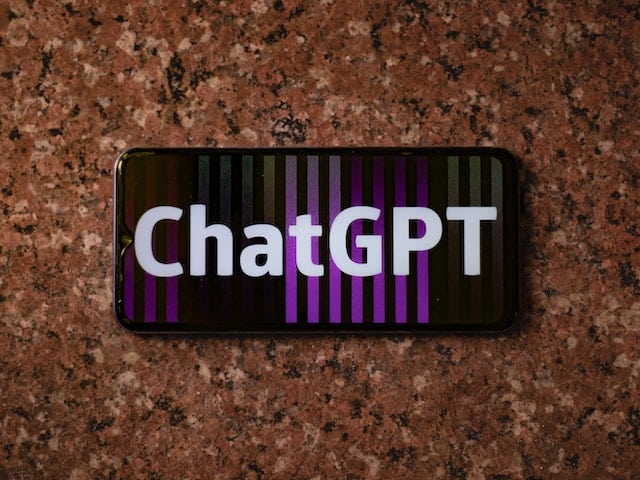Recently, a potential client came to us asking for advice around a software development agreement with an application developer based overseas. Of the various concerns raised, we were struck by one in particular: “would using ChatGPT to draft an intellectual property clause be alright?”
Like most lawyers, we had been aware of the potential impact of AI on the legal industry for many years. In 2018, the Law Society published a ‘Horizon Scanning’ report into the current and potential future uses of AI within a law firm. This report provided a good overview of the implications of the technology, as it was at the time. Now, with the popularity of ChatGPT, one of the most advanced ‘generative AI’ systems released to the public, the implications for the legal industry feel even more immediate then they were in the early 2000s. Anyone with an internet connection can ask ChatGPT legal questions and obtain results. Asking ChatGPT to draft an intellectual property clause is only the beginning – so how do lawyers maintain their relevance in the future?
ChatGPT – a clear vision of things to come
ChatGPT, and most AI systems, ‘learn’ by reviewing vast quantities of data to extrapolate responses to original queries or situations. Their algorithms determine what that response looks like. As more data is reviewed, and the responses validated as good or bad, an AI could theoretically answer most questions with precision.
Asking ChatGPT (or indeed the assistant on your mobile phone) when was the Battle of Hastings would, at the level of current technology, almost certainly provide you with a response of 1066. Factual questions of this nature are relatively easy to answer by the AI because the date is certain. Although ChatGPT has been widely criticised for ‘hallucinating’ facts (making things up to provide some sort of answer), where the query is specific, and the underlying data is precise, AI can be extremely useful even now.
This basic premise applies to legal queries. Asking ChatGPT: “whether contracts need to be in writing to be legally binding in England and Wales” results in fairly helpful advice around oral contracts and the specific contracts that need to be in writing. The results become more interesting as the legal queries increase in complexity.
We asked ChatGPT to draft a contract for the sale of different types of food for a university’s summer party. Much like watching a science fiction film for the first time, there is a certain level of amazement to be had in seeing ChatGPT draft a basic agreement for the supply of goods in real time.
Poking holes in ChatGPT’s contract is somewhat redundant. For example, it is true enough that ChatGPT’s contract did not contain any provisions around what the consequences were if the summer party was cancelled, or if the delivery van did not make it on time – all things a lawyer would point out if ChatGPT’s contract was put in front of them. But if ChatGPT can draft the basics and get some things right at this stage, one would expect that in a few years it will learn to plug its own holes.
Harvey, a specific ‘legal AI’ is already being used by lawyers to instantly draft the standard clauses that normally take an entry level lawyer a few minutes to identify and drop into a wider agreement. Law Geex, another AI tool, in 2018, took a fraction of the time, with a higher rate of accuracy, to identify issues with a non-disclosure agreement. Using AI to promote the efficiency of human lawyers is well underway and the technology is well placed to do so. A substantial amount of time is spent by lawyers (especially junior ones) plugging in search queries on the legal databases, trying to extract the most helpful pieces of information. Even if your search terms are useful, and a list of helpful cases or clauses show up on screen, hours can be spent analysing them and making sure they are right for a client. A good example is appellate decisions. Higher Court judges often refer to paragraph numbers of the lower decision. To get a full understanding of what is being asserted, the entirety of the text referred to should be read. An AI can pull these out instantaneously. This lowers costs for the client, and makes it easier for lawyers to do their jobs.
But ChatGPT is fundamentally a different tool altogether. It could, theoretically, enable anyone to replace the human element of law altogether. No more searching for lawyers, getting onboarded as a client, attending Zoom calls, and paying for a lawyer to answer the question “would using ChatGPT to draft an intellectual property clause be alright?” A member of the public could have a level of confidence in an AI that they would in a lawyer.
Future lawyers
It is clear that some legal work can be performed by a capable AI to an acceptable standard. It is also the case that many clients, at this stage, would prefer to have a human involved. But humans, and human lawyers, make mistakes. AI tools, eventually, are likely to surpass the standard normally expected of lawyers in many respects. There is a conceivable future where a client sets out the key points to be included in a contract, and the AI drafts around them; no different than what a human does now. Doing so could become more preferable than working with a fallible human being.
Despite this hyperbole, the limitations of AI are well covered. AI systems lack the ability to make judgement calls or imagine certain scenarios for which there is no data. Making a decision about what may or may not be a good call appears, at current levels of technology, to be solely a human capability. So lawyers will still have a significant role in a wider, more strategic, sense whilst being supported and less limited by the routine where significant attention is not needed. The chess grandmaster Garry Kasparov cites the game of chess with and against computers. The best results are achieved in chess where a computer can do the calculations, but the human makes the strategic decisions about how the game should best progress. Applied to the legal industry, this type of scenario would produce a kind of super-lawyer, with the data synthesis abilities of a machine but the judgment making ability of a human.
The future lawyer
So, we see the “super-lawyer” – the lawyer with the latest AI-powered resources at their disposal and sound judgment to add to the mix – as someone that clients with money will go to – even for drafting contracts – because that legal service will offer the most security and in theory the best advice.
Starts ups and other clients with tight budgets on the other hand will rely on AI tools to draft their contracts. This will mean that some of the lawyers of today will lose out on work that they would otherwise have got but to a great extent, low budget clients are already doing their own thing right now – they are copying contracts they have found online and creating what we often find to be pretty horrendous contracts. The AI tools of the future will provide contracts that offer better protection for them.
But for some situations, the human element will continue to outdo the robot at least for the foreseeable future. This is when strategic advice is needed. It is the scenario where the client simply wants to know what to do. Or rather to be presented with options and then to be told which one to go with. And bear in mind that the strategic advice given may seem odd to someone who isn’t a lawyer or who is a robot. Would a robot advise a client to carry on working under a contract that isn’t signed? Would a robot advise a client to repeat positions it had already made clear at length to bulk up correspondence in defence of a case? In other words, would a robot think that behaving in a frustrating rather than a logical way would be a sensible move? Or would a robot consider that taking on legal risk was acceptable given that it would put the client in a better commercial position?
We’ll see how the future unfolds but one thing is for sure – if you’re a lawyer or, tougher still, an aspiring lawyer, and you’re not creative and good at strategic thinking then your future is looking shaky.
If you want to know if that clause you asked ChatGPT to draft for you is correct or if you need a creative and strategic lawyer(!) please do not hesitate to contact us.


